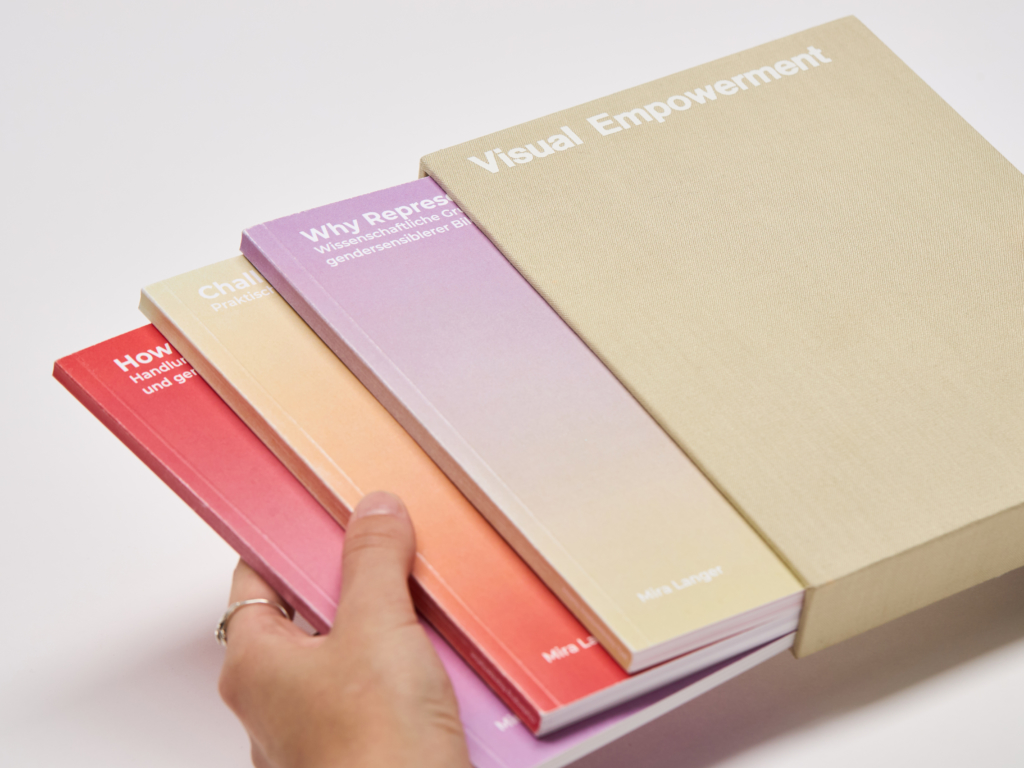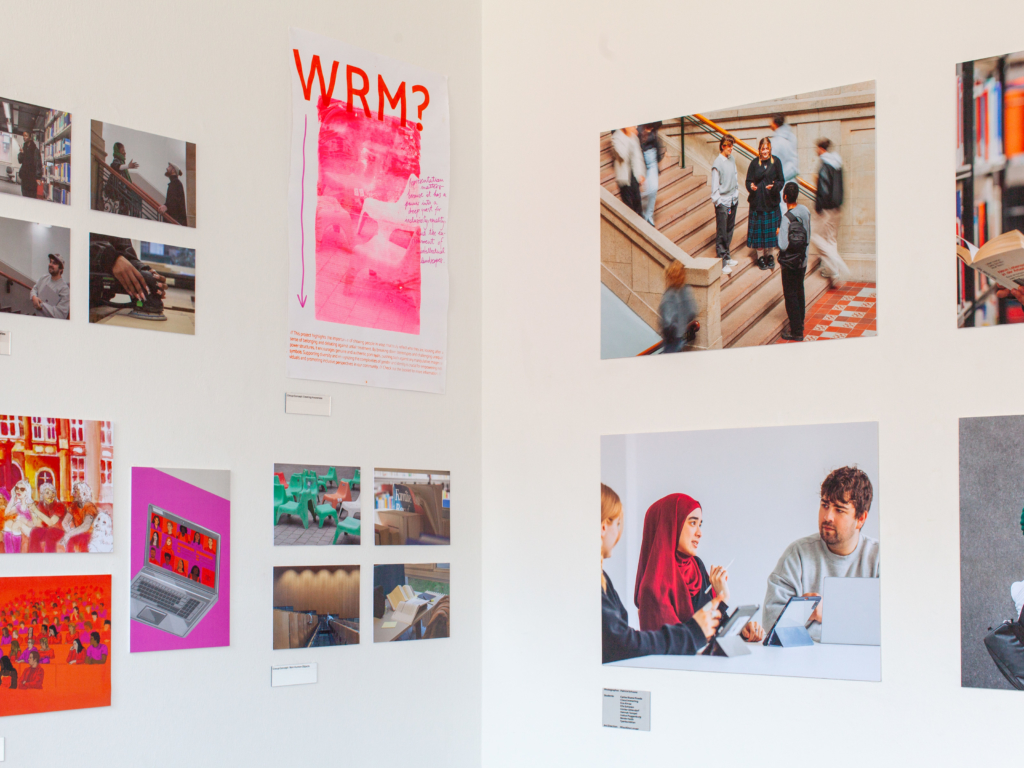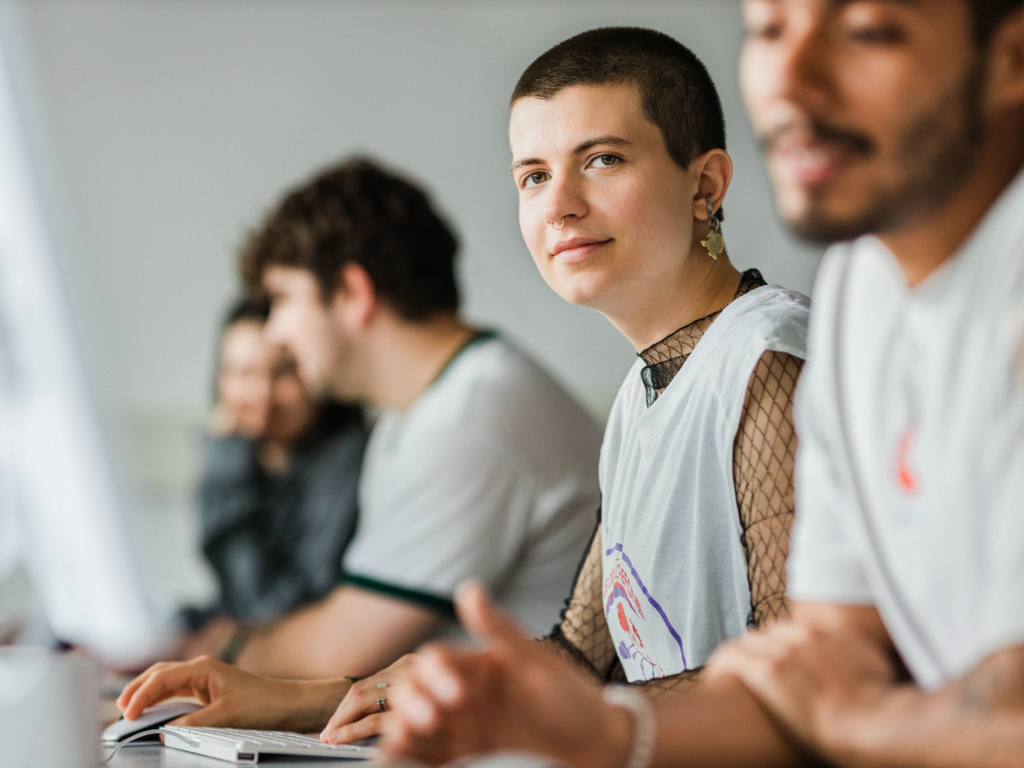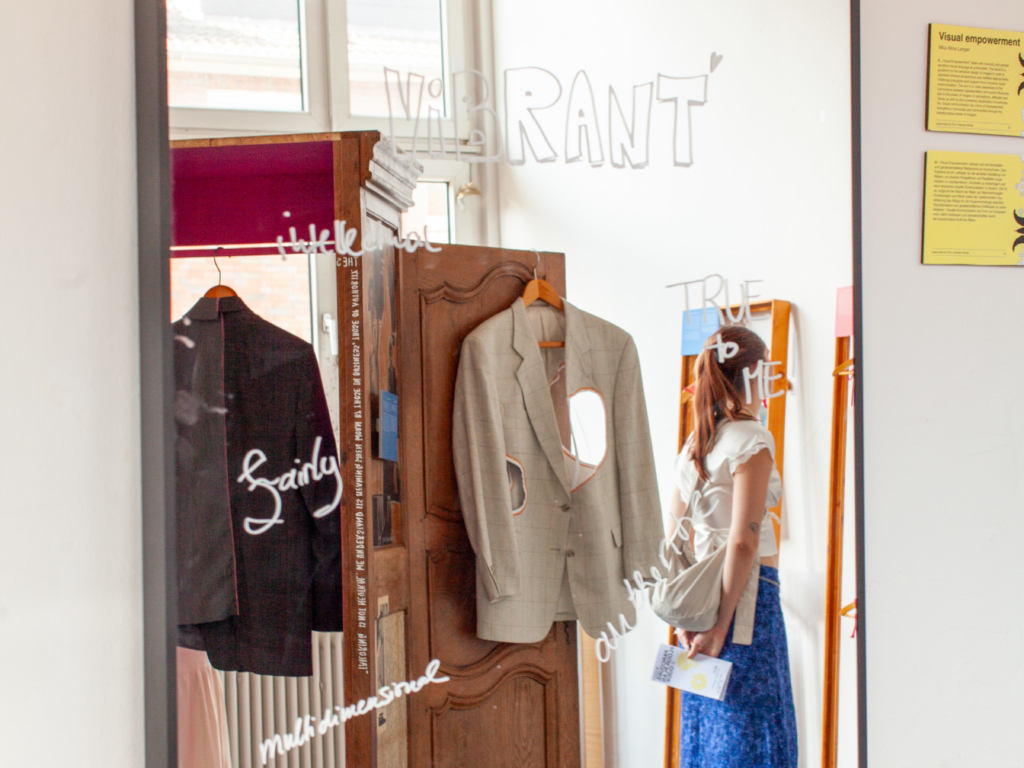The work “Visual Empowerment” is based on the assumption that visual representations influence our actions and attitudes and thus shape the social position of groups of people. It emphasizes the need for a more diversity- and gender-sensitive visual language at universities and creates an approach to the question of the extent to which images can perpetuate existing “images in our heads”, hierarchies and discrimination.
As a social institution, universities have a responsibility to reflect on the challenges and opportunities of today’s world and pursue the goal of a diversity-sensitive teaching and working environment in order to enable as many people as possible to participate in university fields of activity at all levels. The visual language of a university plays a key role in creating an environment that promotes diversity and gender equality. This requires a critical reflection of established processes and outdated patterns.
Images always reflect the subjective perception of the people involved in the processes of image creation, production, selection and post-processing and are shaped by their individual socialization, experiences and cultural background. In order to ensure authentic representation, processes of image creation should therefore be reflected upon and the people (groups) depicted, especially marginalized groups, should be included in this process.
Visual communication as empowerment strengthens individuals and communities within the framework of accepting the limits of visualization by making identities visible, creating role models and a sense of belonging and avoiding the perpetuation of stereotypical representations. To this end, the power of images is recognized and their performative potential for representation is used to enable authentic and reflective representation.
The work is divided into three parts: the scientific analysis “Why Representation Matters”, the practical exploration by students in “Challenging Representation” and the guide “How to Represent” formulated for application. These three parts complement each other to provide a comprehensive view of the topic from different perspectives.
Visual Empowerment” can also be applied outside of universities and can serve other institutions and companies as a basis for an individual concept.
For her work Visual Empowerment – Diversity- and gender-sensitive visual language at universities Mira Alina Langer has been nominated for the Cologne Design Award 2024, which takes place on November 21.









